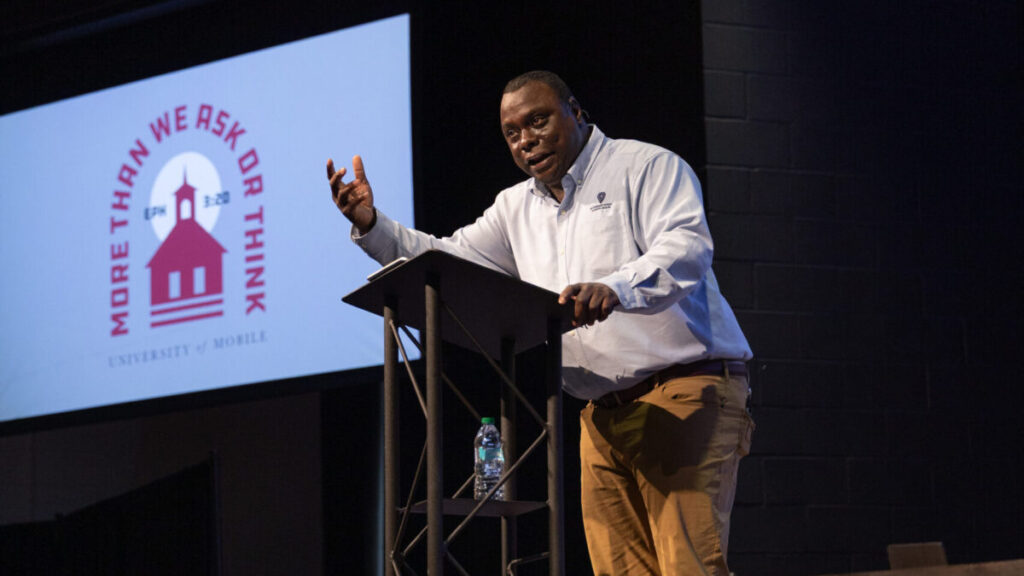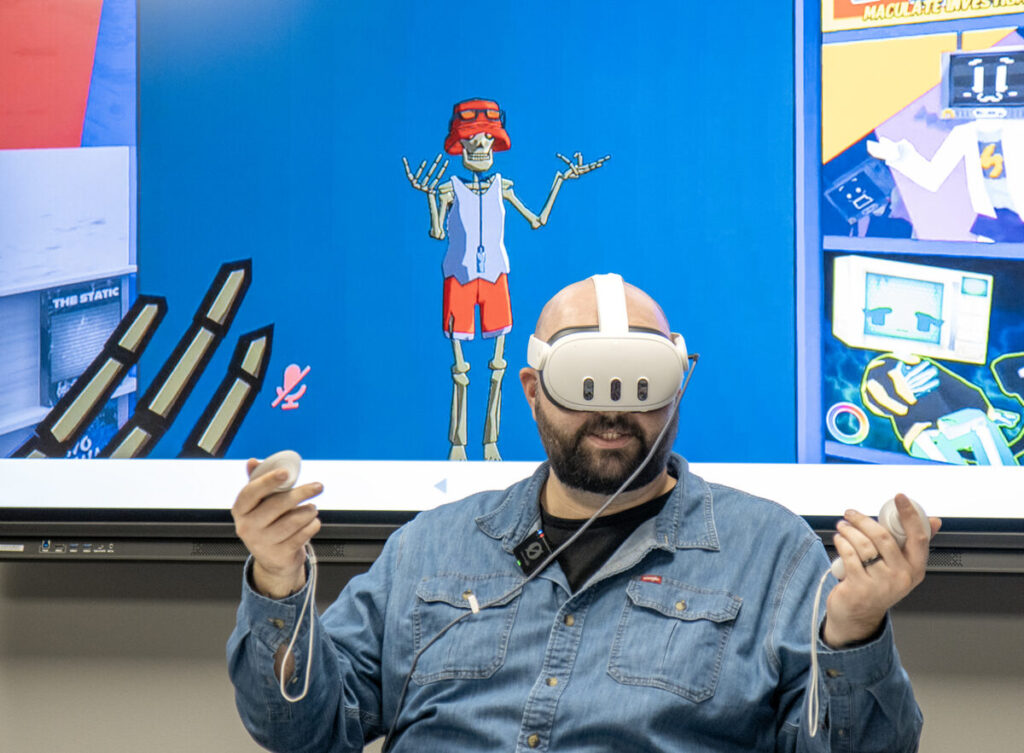The horror of watching the disaster surrounding the Space Shuttle Challenger Jan. 28, 1986, is something James A. (Gene) Thomas still remembers.
“My job that morning was launch director,” said Thomas, who gave his testimony recently at Lafitte Baptist Church, Saraland. “I was in charge of everything that went on — without the launch director’s approval, you don’t launch the shuttle.”
Describing the launch director as “one of the best technical jobs in the world, and the best job in the space program,” he said it is a position everyone wants.
“Everything was right with God; He was first in my life, and Jesus was important above everything. I was on top of the world,” Thomas said. “Then something happened. There’s no more terrible feeling than to all of sudden see that big ball of fire and smoke,” Thomas added. (TAB)
Sitting in launch control at Kennedy Space Center in Cape Canaveral, Fla., he realized no difficulty in his life had, or perhaps ever would be as hard to cope with.
“When the realization hit me in about a minute that the astronauts were either dead or dying, I pounded my fist in my hand and said, ‘Lord, why does this have to happen?’ ” Thomas remembered. “And I can assure you God spoke to me like never before and said, ‘Don’t you worry about this, I’m still in charge of this universe; all of this will come to good.’ ”
‘Close friends’
Thomas shared how he attended a cookout with the Challenger crew the night before the launch. He said he had worked with pilot Mike Smith and commander Dick Scobee, who were “close friends, like brothers of mine.”
“I never left one of those that I didn’t think that it may the last time I see these folks alive,” Thomas said. “I got in my car, buckled
my seat belt, and I thought about safety.
I stopped and prayed, ‘God, please protect
these astronauts when they fly.’ ” “The next day was the most beautiful day I’d ever seen.
By the time we got ready to launch, the temperature was around 40 degrees,” he said.
Thomas was in charge of 300 engineers who managed the launch of the shuttle, each part of a small group specializing in a particular aspect of engineering.
Although he did not know it at the time, engineers had argued throughout the previous night about concerns with the O-rings on the solid rocket motors.
“They had decided at their own level that everything was OK, and there was no need to tell anyone at a higher level about it,” Thomas said. “They made a bad judgment call.”
He said Vice President George Bush flew in from Washington that night.
“I stood there close to him, and he told us that Americans still supported us, and the president wanted us to find out what happened and rebuild the space program,” Thomas said. “There were big tears in his eyes as he spoke.”
Trying to cope
Thomas went home around 11 p.m., after being at work 24 hours.
“I walked into our master bedroom and sat down on the bed. We (his wife and daughters) started hugging; I cried and cried — for 20 or 30 minutes,” he said. “I wasn’t crying for America or for the space program or myself. I was crying for seven people who were dead.
“So how in the world do you cope with something like that?” he asked.
He said God gave him two verses the day after the Challenger tragedy — Romans 8:38-39.
“For I am persuaded that neither life, nor death, nor angels, nor principalities, nor powers, nor things present, nor things to come, nor height, nor depth, nor any other created thing shall be able to separate us from the love of God, which is in Christ Jesus our Lord,” he said, quoting the verses.
Time of trauma
“I don’t know why God allowed this tragedy, but He gave me a way to get through this time of trauma,” Thomas said.
“Fifty years from now, if Christ hasn’t returned, people will still be learning to make war, how to make peace, how to make money, how to cure certain diseases — but nothing in this world matters more than a personal relationship with Jesus Christ,” he said.
“Some people ask me how I convince folks that all this (men in space) stuff is real, but if I could convince you of something, I’d use every fiber in my body and every brain cell in my head — every bit of energy — to convince you that the only thing significant is eternal,” he said.





Share with others: